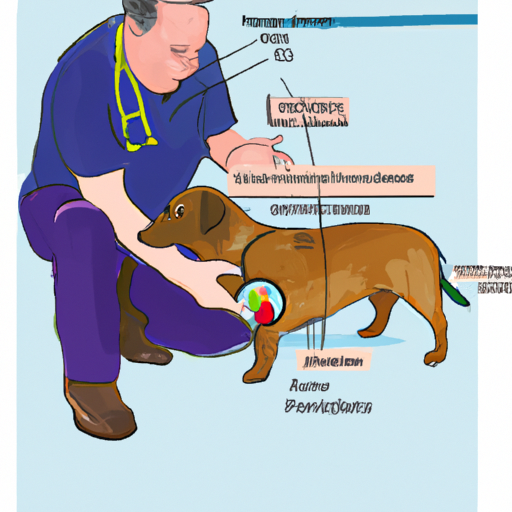As a caregiver, you know how important it is to take care of your furry friend. When your dog is diagnosed with pancreatitis, it can be overwhelming. You’re probably asking yourself, “How do I treat pancreatitis in dogs?” Don’t worry, we’re here to guide you through this difficult time.
Understanding Pancreatitis in Dogs
Firstly, it’s vital to understand what pancreatitis is. It’s an inflammation of the pancreas that can occur suddenly, known as acute pancreatitis, or it can be a long-term, chronic condition. Symptoms can range from mild to severe, and if not treated promptly, it can be life-threatening.
Common signs of pancreatitis in dogs include:
- Loss of appetite
- Vomiting
- Abdominal pain
- Fever
- Diarrhea
- Lethargy
Diagnosis and Treatment
If you observe any of these symptoms, it’s crucial to take your dog to the vet immediately. The vet will perform a series of tests, which may include blood tests, ultrasound, or CT scan. Once pancreatitis is confirmed, the treatment will depend on the severity of the condition.
Treatment may involve:
- Hospitalization for fluid therapy and pain management.
- A low-fat diet to reduce the work of the pancreas.
- Medications to control vomiting and pain.
- In severe cases, surgery may be required.
Diet and Nutrition
One of the significant aspects of managing pancreatitis in dogs is dietary control. A low-fat diet is generally recommended, as high-fat foods can trigger an episode of pancreatitis.
Food suggestions include:
- Boiled chicken
- Rice
- Pumpkin
- Sweet potatoes
Long-term Management of Pancreatitis
Long-term management of pancreatitis involves regular vet check-ups to monitor your dog’s condition. Regular blood tests and ultrasounds can help detect any changes in the pancreas early.
Remember to always:
- Keep up with your dog’s low-fat diet.
- Ensure your dog gets regular exercise.
- Avoid giving your dog table scraps, which may be high in fat.
FAQs
Q: Can pancreatitis in dogs be cured?
A: Pancreatitis can be managed, but not cured. It’s about managing the symptoms and preventing flare-ups.
Q: What causes pancreatitis in dogs?
A: The exact cause is unknown, but certain factors like a high-fat diet, obesity, and certain medications can increase the risk.
Q: Can my dog live a normal life with pancreatitis?
A: Yes, with proper management and care, your dog can lead a normal life.
Q: Is pancreatitis painful for dogs?
A: Yes, it can cause severe abdominal pain. If your dog is in pain, seek immediate veterinary attention.
Remember, you are not alone in this journey. With proper care and treatment, your dog can live a happy, healthy life despite pancreatitis.



